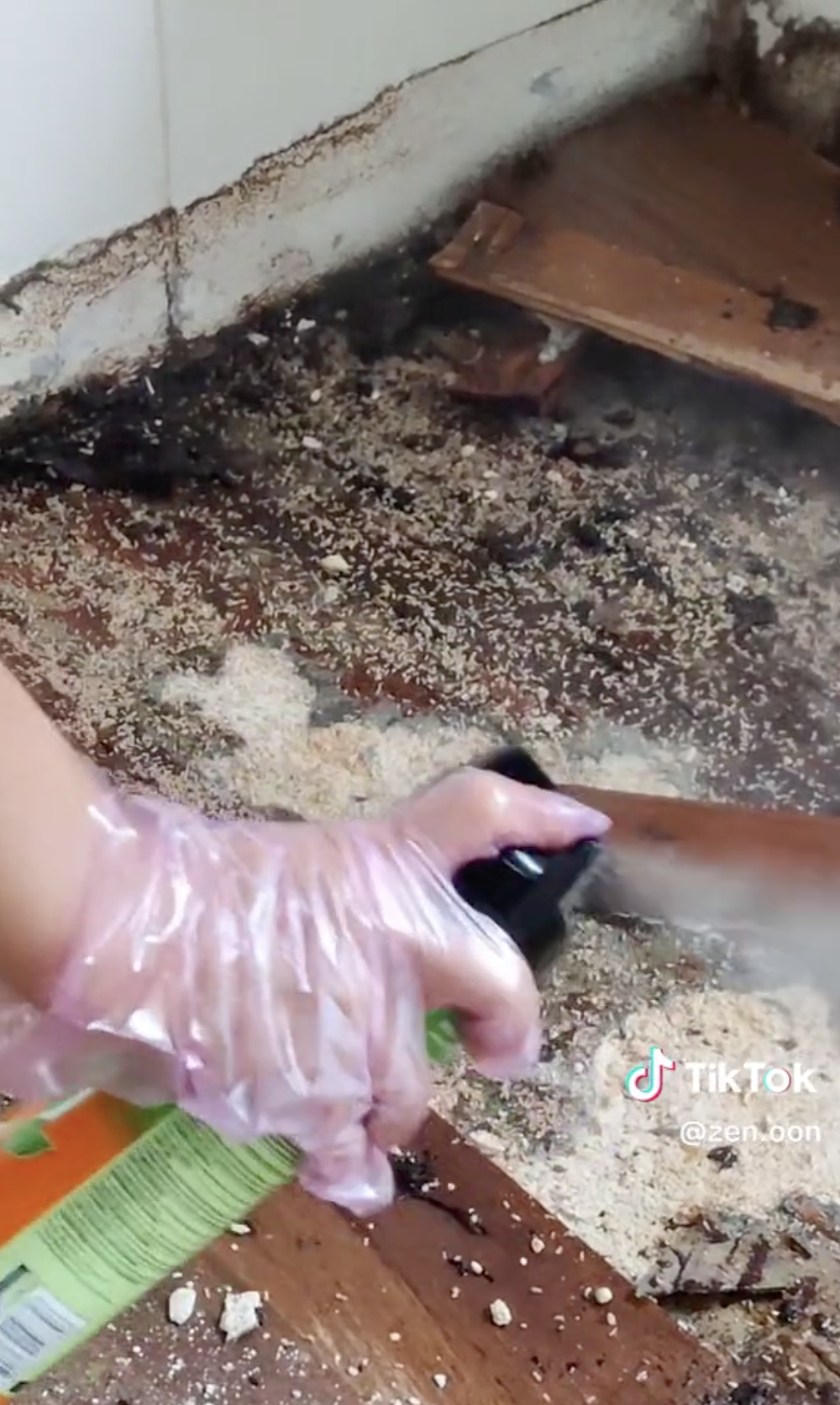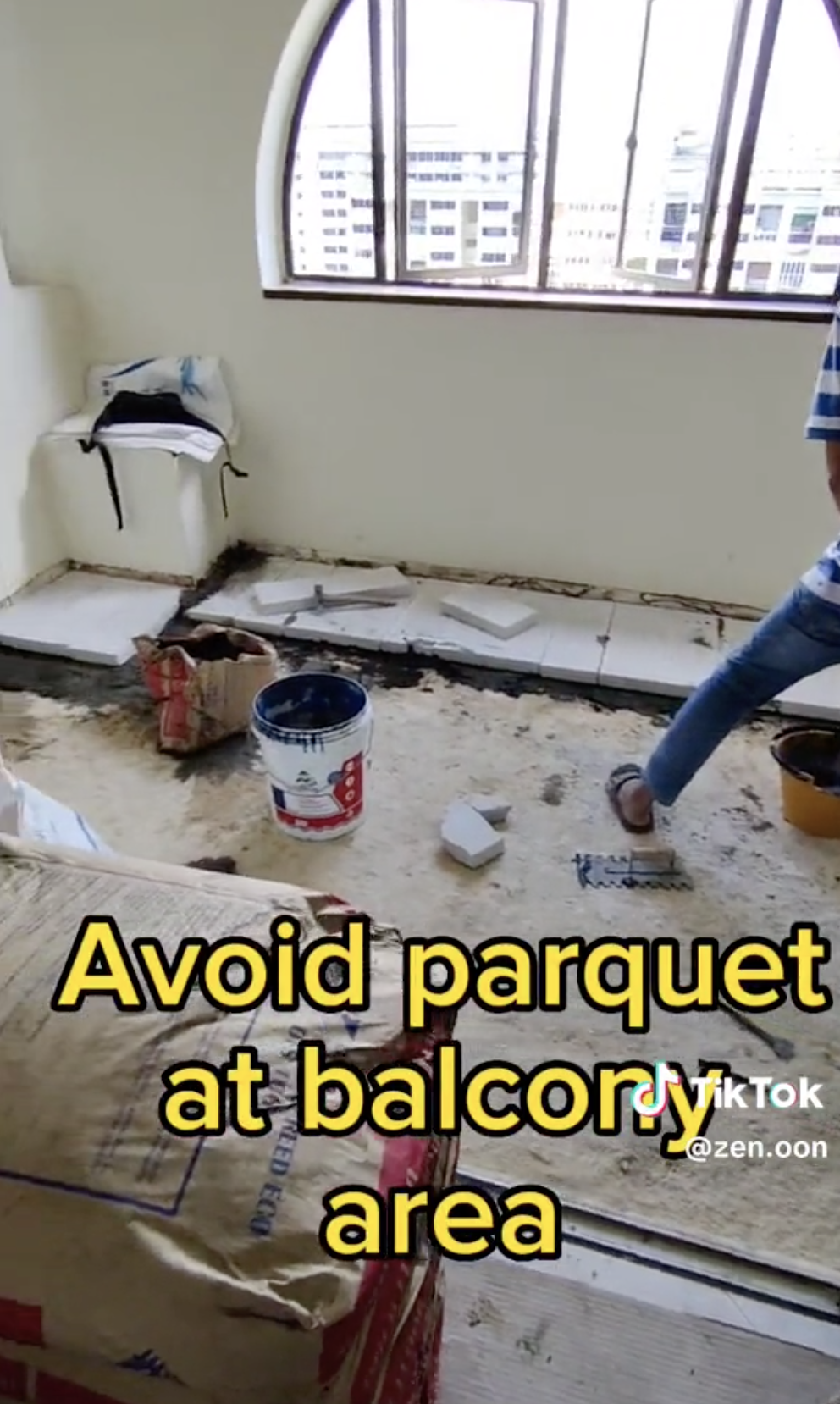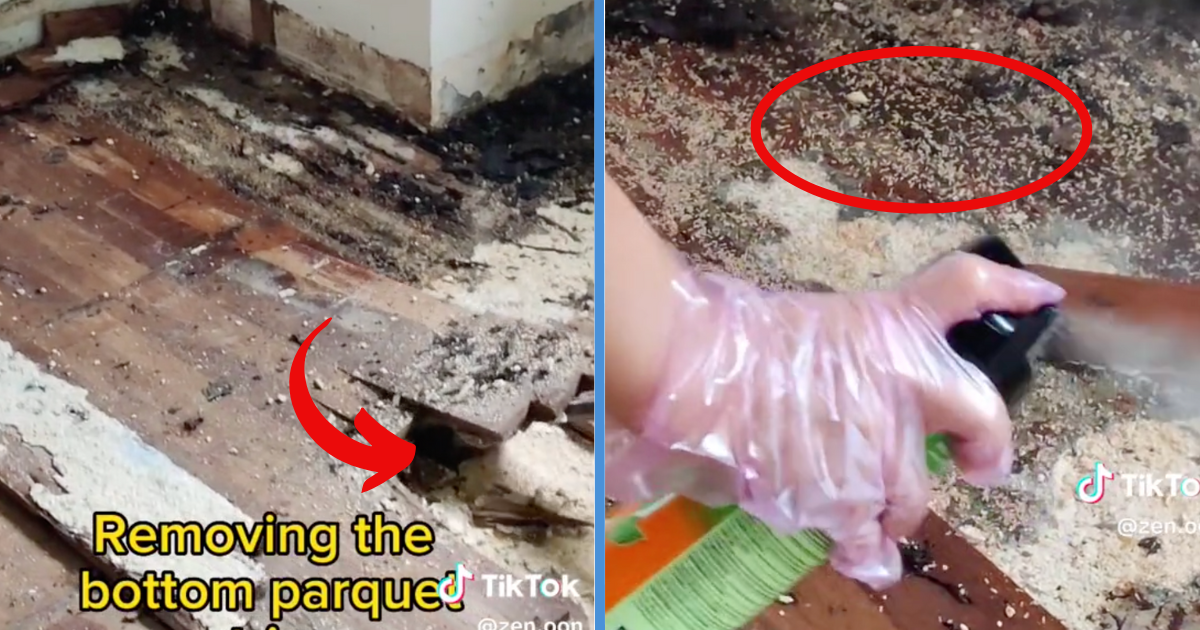In our garden-state Housing Development Board (HDB) neighbourhoods, it’s not uncommon to encounter insects like ants, mosquitoes, or cockroaches.
However, one HDB flat owner got more than he bargained for when he sought renovation services for his house.
Discovered Termites In the Raised Flooring Of the Apartment’s Balcony
Mr Oon, a 42-year-old renovation business owner that has been consistently creating TikToks about his renovation projects, discovered an alarming issue with a client’s balcony wooden flooring.
In the 40-second TikTok clip, thousands of termites can be seen crawling about after Mr Oon’s colleagues lifted the wooden flooring of the balcony.
The flooring was not only infested with hundreds of termites but it was also revealed that the previous homeowner had installed tiles over the wooden flooring, potentially worsening the termite problem.
The raised flooring suggests that termites and other wood-destroying organisms had eaten through wooden joists and subflooring in the balcony area to create tunnels for their colonies.
This can cause significant portions of the floor’s support structures to be compromised, causing sinking or sagging in other areas.
Mr Oon, who began the renovation work after the homeowner complained of pests in the balcony, acknowledged that the presence of termites was somewhat expected.
Given Singapore’s humid weather, open spaces like balconies are susceptible to infestations by Dampwood and subterranean termites that thrive in such moisture-rich environments.
Nonetheless, the extent of the infestation was still astonishing to witness
Eradicated Termites and Installed New Flooring After Discovery
Upon discovering the termite infestation, Mr Oon’s team took immediate action.

In the video, they can be seen spraying insecticide repeatedly to eradicate the pests and later installing new flooring for the balcony, ensuring that the termites were eliminated entirely.

The video also includes a warning from Mr Oon, urging people to avoid using wooden flooring in balcony areas due to their vulnerability to termite attacks.
According to reports, any wooden structure within a home, such as ceiling beams, floor joists, wood windows and doors, baseboards and trim, wood panelling, built-in cabinets, and hardwood floors, is susceptible to termite infestations.
Therefore, homeowners with wooden flooring or other wooden surfaces should regularly inspect for signs of damage and take necessary measures to repair and protect their flooring before a severe infestation occurs.
While Mr Oon advised the homeowner to engage a pest control company, the homeowner declined the recommendation.
Nevertheless, Mr Oon took responsibility for the situation by disposing of all timber fittings from the balcony area, ensuring that the termites would not migrate to other apartments.
Termite Infestations in Singapore
The viral video has left viewers astonished by the abundance of termites “hidden” within the house, prompting some to reconsider using wooden fixtures at home.
In the comments section, concerned netizens have shared valuable tips on preventing termite infestations, recognising the potential harm these pests can cause to wooden fixtures and furniture.
The viewers’ concerns are justified, considering this is not the first instance of termite sightings in local apartments.
In 2018, a resident reported the presence of termites in his new HDB Build-to-Order (BTO) studio flat, despite residing there for only three years.
Likewise, three out of six condominium buildings fell victim to a termite invasion in the West Coast Crescent area, affecting at least ten units in the same year.
These condominium blocks, which were constructed in 1998, showed signs of age and vulnerability to termite attacks.
These incidents were not isolated, as termite infestations occurred thrice in the apartments since 2014.
The condominium’s management committee denied responsibility for the termites, claiming that the pest control company they had hired in 2010 had assured them that the termites would not reappear until 2015.
Similarly, HDB took a similar stance, stating that termite infestations are not their responsibility, despite being the builders of the units, and they are not obliged to compensate for damages caused by such infestations.
While there are currently no established regulations addressing termite infestations, Rentokil, a pest control company, recommends several preventative measures.
Firstly, it is essential to maintain a dry environment by promptly fixing any leaking pipes and taps in the house. By eliminating excess moisture, one can deter termites from establishing colonies.
Sealing cracks around utility and water pipes are also crucial to prevent termite entry points.
Furthermore, installing doors and windows that fit tightly and are challenging to open can serve as an additional barrier against termites.
Additionally, discarding any termite wings found on window sills and floors is advisable to eliminate evidence of termite activity and minimise the chances of further infestations.
